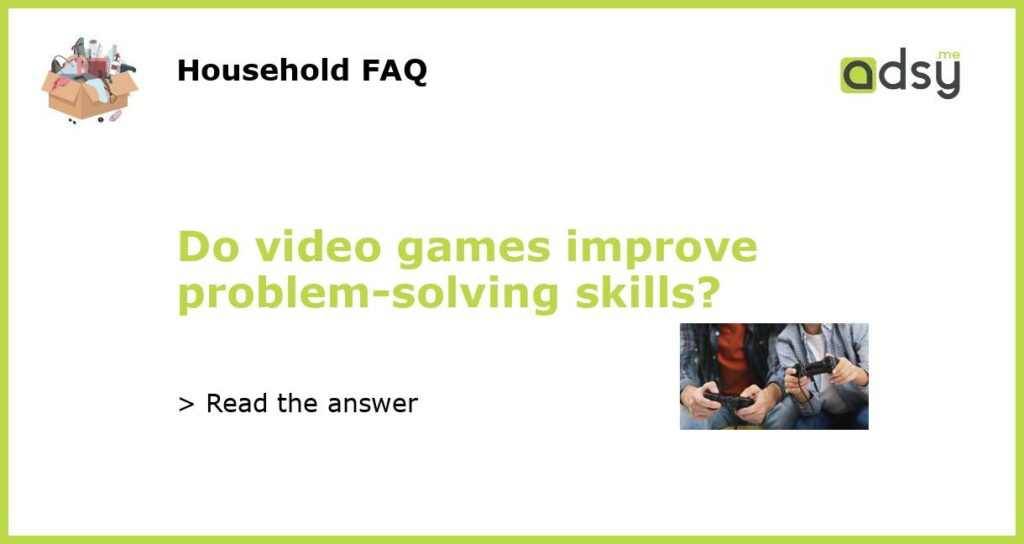Video Games and Problem-Solving Skills: The Impact Revealed
Video games have been a controversial topic when it comes to their impact on individuals, particularly in regards to problem-solving skills. While some individuals argue that video games promote violence and hinder cognitive development, others believe that they can actually improve problem-solving skills. So, do video games really have a positive impact on problem-solving abilities? Let’s investigate.
The Cognitive Benefits of Video Games
Research has shown that certain video games can have cognitive benefits, particularly in relation to problem-solving skills. A study conducted at the University of Rochester found that video games involving strategy and puzzle-solving can improve cognitive flexibility and problem-solving abilities. The participants in the study showed improved performance on tasks that required thinking outside the box and finding creative solutions. This suggests that certain video games can actually enhance problem-solving skills.
Enhancement of Analytical Thinking
Video games often require players to analyze complex situations and make quick decisions. This can lead to an enhancement of analytical thinking skills, which are crucial for problem-solving. When playing games that involve strategic planning and decision-making, players are forced to consider multiple variables and evaluate the potential outcomes of their choices. This form of analytical thinking can transfer to real-life problem-solving scenarios, helping individuals to think critically and make more informed decisions.
Improvement in Resilience and Persistence
Video games can also improve an individual’s resilience and persistence, which are important traits for problem-solving. In many games, players face challenges and obstacles that require perseverance in order to overcome. By repeatedly attempting to overcome these challenges, players develop a sense of resilience and persistence that can be applied to real-life problem-solving situations. They learn not to give up easily, but to keep trying different approaches until they find a solution.
Collaborative Problem-Solving in Multiplayer Games
Multiplayer video games often require players to work together to achieve a common goal. This collaborative problem-solving can help individuals improve their teamwork and communication skills, as well as their ability to find solutions collectively. In these games, players must coordinate their actions and strategies, share information, and collaborate effectively to succeed. This type of problem-solving can be transferable to real-life situations where teamwork is required, such as in the workplace or in academic settings.
The Verdict: Yes, Video Games Improve Problem-Solving Skills
While it is important to note that excessive gaming can have negative effects and that not all video games are created equal, the research suggests that certain video games can indeed improve problem-solving skills. Games that involve strategy, puzzle-solving, and collaboration have been shown to enhance cognitive flexibility, analytical thinking, resilience, and teamwork – all of which are important components of effective problem-solving. When played in moderation and with appropriate content selection, video games can be a valuable tool for improving problem-solving abilities.






